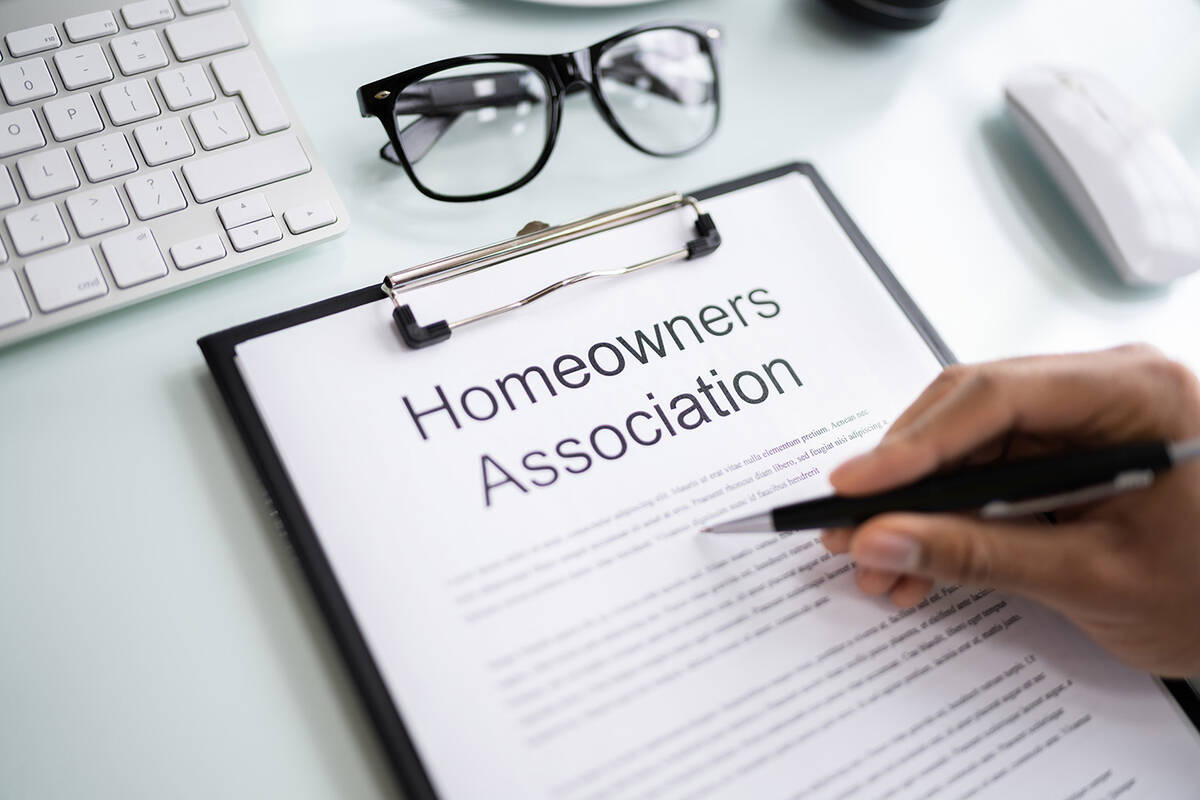HOA board candidate can have addresses, not names
Q: I enjoy your articles in the Las Vegas Review-Journal-Review, and thought you might be a helpful resource for answering these two (hopefully) simple questions:
1. I am running for a position on my homeowners board in an upcoming election and asked the current board for the mailing addresses of eligible homeowners so I can send them voter information about myself and current issues in our community. The current board refused to give me the list, saying it’s confidential and they cannot release it. Is this correct, and if not, how do I obtain this information if they refuse to give it to me? Perhaps there’s another way to procure homeowner mailing addresses?
2. Does Nevada allow proxy voting from eligible homeowners in HOA board elections, and if so, what are the requirements for proxy voting?
Any insight you can provide will be greatly appreciated.
A: Under Nevada Revised Statutes 116.31034 (17) (b) (1), associations must provide a list of the mailing addresses of each unit which must not include the names of the unit owners or the name of any tenant of a unit owner.
Under NRS 116.311 (5), a vote may not be cast pursuant to a proxy for the election or removal of the executive board of an association.
Q: I have a question on how long can a HOA keep a violation notice open?
Background: I live in a HOA of 101 homes. We have a management company because when we were a self-governed HOA some errors were made. An agreement was made with the state to get a management company so we would not have to pay fines.
On July 31, I got a notice that provided the following:
■ During a recent inspection it was noted that there is an overgrown tree(s). Please trim the overgrown tree(s). Covenants, conditions and restrictions 6.16: After installation the owner shall, at his expense, maintain said landscaping in a healthy, attractive condition. If any owner fails to landscape or maintain landscaping in accordance with the foregoing, the association may landscape said area and/or maintain landscaping in said area, and the cost thereof shall be assessed to the owner as an assessment in accordance with Article 5.
I disputed that I was in violation, pointing out that there are no size or height restrictions on trees within the HOA. Further I explained that the two trees in question provide necessary shade both for ground cover plants and the house, which keeps the plants from dying in the summer sun and helps lower the energy usage of the house.
I sent a response by email to the electronic system and by postal mail. I have heard nothing on the violation, and it is still showing in the electronic system.
Thus, my question to you, how long can they keep this violation open? Is there any time limit to when they would have to restart the process, or when I can consider this notice closed?
What is annoying is that the photo they took was poor and a misrepresentation. A photo of the house that I took at the time, from a front view, in my opinion show nothing wrong with the trees in question. I appreciate any thoughts you may have on the matter.
A: The alleged violation will stay on the books until resolved. The association should contact you as to the status of the violation. Have they dismissed it or are they fining you for each week of noncompliance? You will need to contact them.
Barbara Holland, CPM is an author, educator, expert witness on real estate issues pertaining to management and brokerage. Questions may be sent to holland744o@gmail.com.












